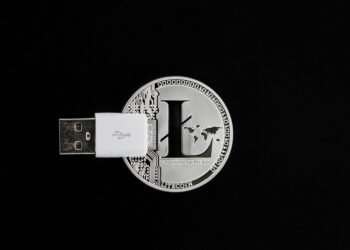Cryptocurrency has been making waves in the financial world for the past decade, with Bitcoin leading the charge as the first decentralized digital currency. However, in recent years, a new player has emerged in the form of decentralized finance (DeFi), which is revolutionizing the way we think about traditional banking and finance.
Bitcoin, created in 2009 by an anonymous individual or group known as Satoshi Nakamoto, was designed to be a peer-to-peer electronic cash system that operates without a central authority or intermediary. This revolutionary concept gave birth to a new era of finance that is based on transparency, security, and decentralization. Since its inception, Bitcoin has gained a massive following, with millions of users around the world investing in and using it for various transactions.
However, while Bitcoin has paved the way for the adoption of cryptocurrencies, it has limitations in terms of scalability, transaction speed, and functionality. This is where DeFi comes in. DeFi is a decentralized financial system built on blockchain technology that aims to eliminate the need for traditional financial intermediaries such as banks and brokers. Instead, DeFi uses smart contracts and decentralized applications (dApps) to automate and streamline financial processes, such as lending, borrowing, trading, and asset management.
One of the key advantages of DeFi is that it offers greater accessibility and inclusivity to individuals who may not have access to traditional banking services or who are looking for alternatives to the traditional financial system. With DeFi, users can interact directly with the protocol through their digital wallets, without the need for a middleman. This reduces costs, speeds up transactions, and allows for greater financial independence and control.
Another key feature of DeFi is the concept of liquidity mining or yield farming, where users can earn rewards in the form of cryptocurrency by providing liquidity to a decentralized exchange or lending platform. This has created a new wave of decentralized finance enthusiasts who are actively participating in the ecosystem and earning passive income through their investments.
However, as with any new technology, DeFi comes with its own set of risks and challenges. Security breaches, smart contract vulnerabilities, and regulatory uncertainties are just some of the issues that need to be addressed in order for DeFi to reach its full potential. Despite these challenges, the growth of the DeFi space has been nothing short of remarkable, with billions of dollars locked up in various protocols and platforms.
In conclusion, cryptocurrency, led by Bitcoin and DeFi, is changing the face of finance in ways that were previously unimaginable. The decentralized nature of these technologies offers a new way of thinking about money, value, and trust, and has the potential to revolutionize the global financial system. As we continue to navigate this new and rapidly evolving landscape, it is important to stay informed, educated, and vigilant in order to make the most of the opportunities that cryptocurrency and DeFi have to offer.








